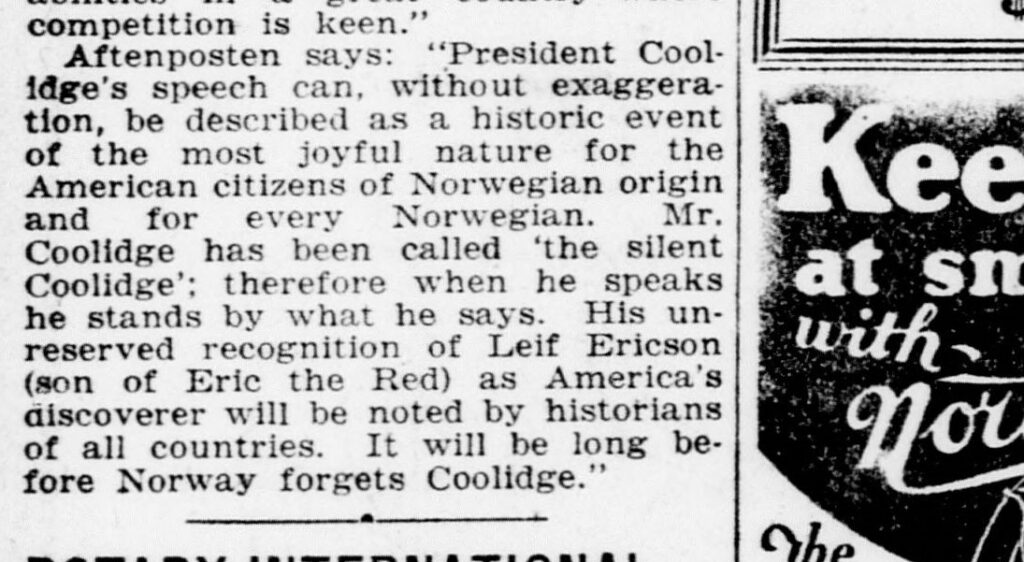On 2 September 1901, Vice President Theodore Roosevelt opened the Minnesota State Fair. That evening, the local paper reported his “eloquent oration” in full, including:
A good many of you are probably acquainted with the old proverb: ‘Speak softly and carry a big stick – you will go far.’
Twelve days later, Roosevelt was sworn in upon President McKinley’s assassination.
One president who spoke softly was “Silent Cal” Coolidge. The story goes that a fellow diner said “I made a bet today that I could get more than two words out of you”, to which Coolidge replied “You lose.”
Politics, of course, is politics, and Coolidge once explained his position to Ethel Barrymore:
I think the American people want a solemn ass as a President, and I think I will go along with them.
In 1925, the Minnesota State Fair was the site of the Norse-American Centennial. There, Coolidge gave a speech. It is an excellent example of the difference between what is said and what is heard.
What was heard and what has been, by and large, remembered, is that Coolidge said that Leif Erikson discovered America. This is the US press reporting Norwegian coverage:

Leaving to one side the modern discomfort with discovery of places already occupied by a non-European population, there is the seductive self-confusion of nation and place.
Neither Erikson, nor Columbus for that matter, ever landed on what would later be the United States of America. Nor did Coolidge say as much. After a neat segue from the Norse to Normandy to the Norman Conquest, he went no further than:
… even before William of Normandy had conquered at Hastings, Lief the son of Erik, near 500 years before Columbus appears to have found the New World.